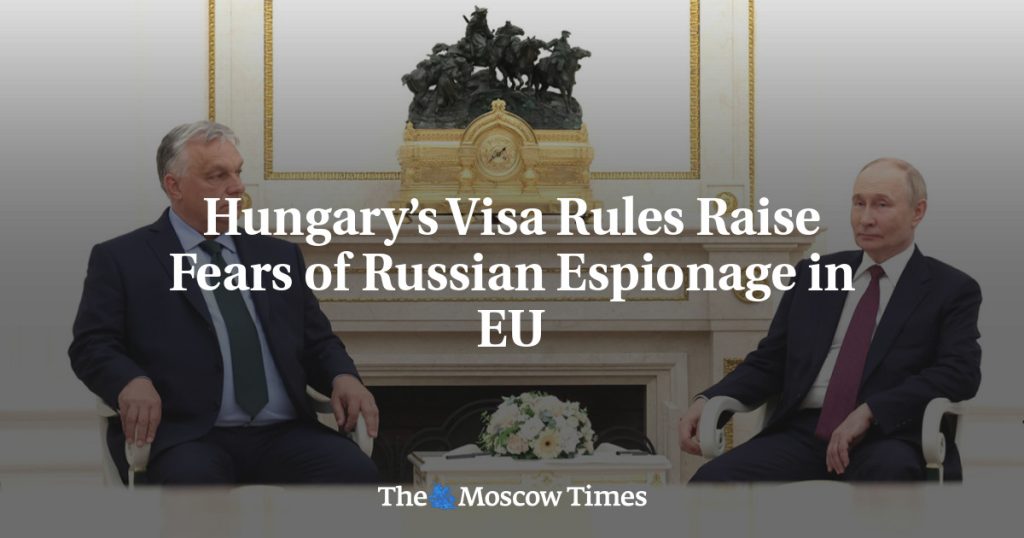The European Parliament’s biggest group, the European People’s Party (EPP), has raised concerns about espionage risks stemming from Hungary’s decision to relax visa rules for Russian and Belarusian nationals. Hungarian Prime Minister Viktor Orban signed a decree extending the fast-track visa scheme to eight countries, including Russia and Belarus, allowing citizens from these countries to work in Hungary. The EPP Chairman, Manfred Weber, described the new visa rules as highly questionable and warned that they could create loopholes for espionage activities, making it easier for Russians to move around the EU’s borderless Schengen area.
Weber called on European Council head Charles Michel to address the matter and schedule a debate on it at the next EU Council meeting. He urged EU leaders to take stringent measures to protect the integrity of the Schengen area and prevent other member states from implementing similar initiatives. The European Commission expressed its intention to contact Hungary to clarify the scope of the visa scheme. A spokesperson emphasized that Russia is a security threat to the EU, and measures need to be put in place to ensure the safety of the Union and the security of the Schengen area as a whole.
The decision to relax visa rules for Russian and Belarusian nationals has sparked concerns about potential espionage risks and security implications within the EU. Orban’s close ties with the Kremlin, despite Russia’s invasion of Ukraine, have raised eyebrows among EU leaders. The extension of the fast-track visa scheme to additional countries has been met with scrutiny, with fears that it could make it easier for Russian citizens to move freely within the Schengen area, posing security threats.
The EPP leader’s letter to the European Council head highlights the seriousness of the situation and calls for action to protect the integrity of the Schengen area. The EPP’s concerns about espionage activities and inadequate security screening of Russian and Belarusian workers entering Hungary have sparked calls for immediate measures to address the potential risks. The European Commission’s decision to reach out to Hungary to clarify the scope of the visa scheme indicates a collective effort to ensure the safety and security of the EU amid escalating tensions with Russia.
Orban’s decision to extend the fast-track visa scheme to Russia and Belarus has strained relations with fellow EU leaders, who have expressed dismay at his close ties with the Kremlin. The timing of the decree, just days after Orban’s visit to Moscow, has fueled concerns about Hungary’s allegiance and the implications for EU security. The EPP’s call for a debate on the matter underscores the gravity of the situation and the need for decisive action to safeguard the EU’s interests and protect the Schengen area from potential security threats posed by relaxed visa rules for Russian and Belarusian nationals.


